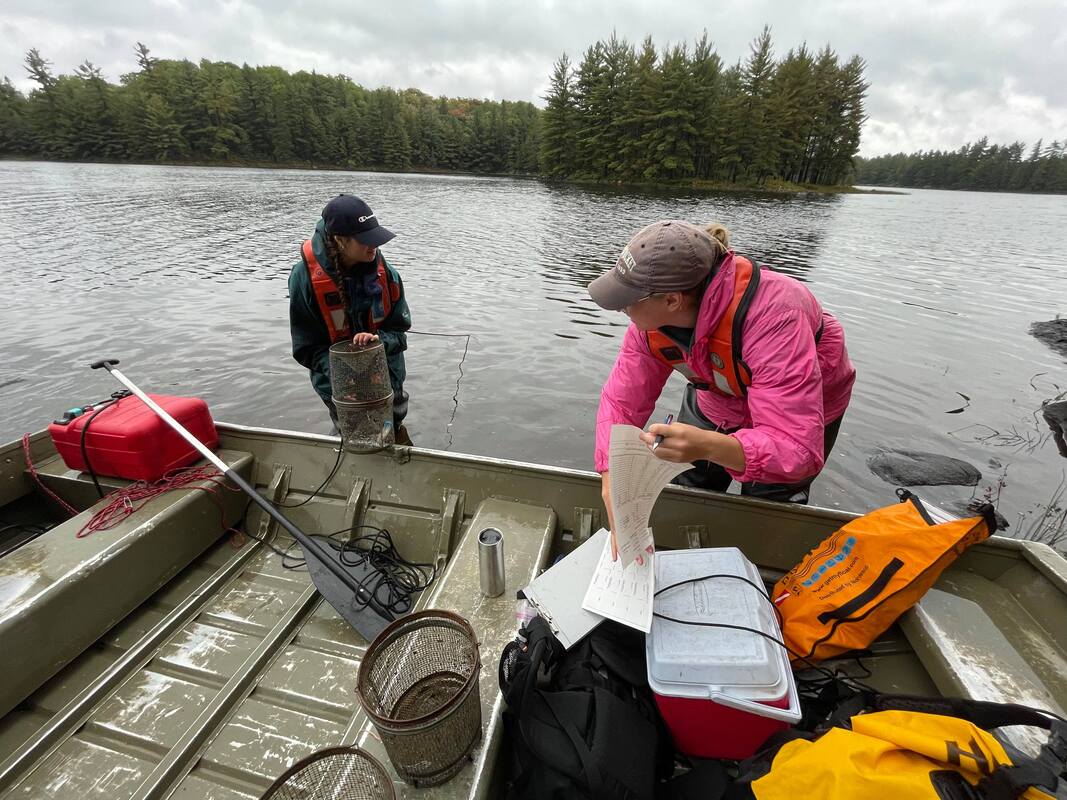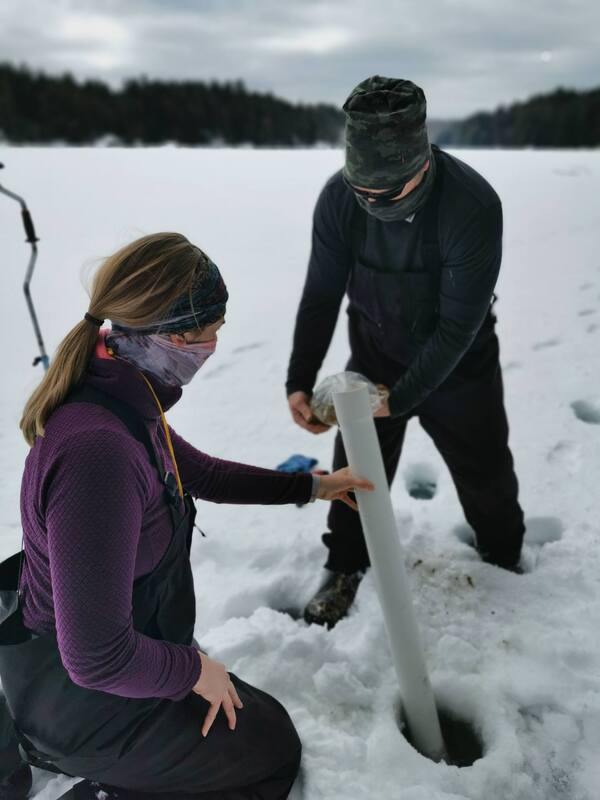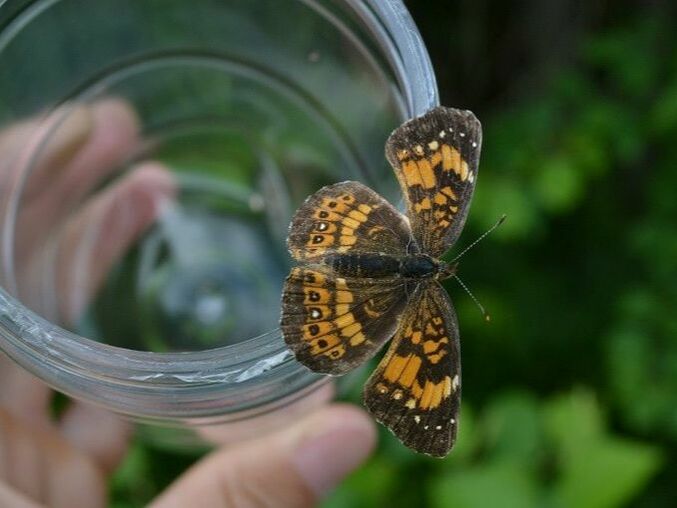Research in Killarney Park
We work with partners to support research projects in Killarney Provincial Park.
Ontario Breeding Bird Atlas (OBBA)
|
From 2021-2025 Ontarians have been working to complete the third Ontario Breeding Bird Atlas (OBBA). This initiative only happens every twenty years and is one of the biggestcommunity science initiatives that exist. With sponsorship from the Friends of Killarney Park, volunteers and park staff have been able to monitor bird populations in the park. This survey work includes hiking and paddling to remote locations in the park to survey for birds within all representative ecosystems of the park. The data from these surveys will be used for environmental assessment work within the park, but also adds to our greater understanding of the health of bird populations provincially. This also allows us to compare current bird population in the park to data collected in 1980, and then again in the 2000s.
|
Acid Rain Restoration Work
|
The Friends of Killarney Park have been key supporters of this work, by providing funding to the Living with Lakes Centre, providing money for Masters students, providing money for field equipment, and even paying for helicopter flights used in bringing thousands of fish fry to remote lakes in the park.
|
The Recovery of Killarney Lakes from Acid RainOver 40 years ago, lakes in Killarney Park were acidified by atmospheric pollutants from the Sudbury smelter complex and other industrial sources. Most of the Killarney lakes were damaged by the late 1970s resulting in acidic pH levels, extremely clear waters and the loss of many species including fish, amphibians and birds.
In summer 2021, research students Haley and Genevieve, from Laurentian University’s Living with Lakes Centre, were in Killarney Provincial Park studying the chemical and biological recovery of the acidification of these lakes. Results from the study are not yet available but promising observations were made by the researchers including signs of chemical recovery and recovery of indicator species. Stay tuned for future updates! |
Lake Trout ResearchLaurentian University M.Sc. student Jasmine Louste-Fillion and OMNRF fisheries technologist Lee Haslam return lake trout embryos to the spawning sites on Ruth-Roy lake after an absence of trout in this lake for more than 60 years. This unique experiment is part of the lake trout restoration work that the Friends of Killarney support through a grant to Dr. John Gunn at the Vale Living with Lakes Centre at Laurentian University.
Wolf SurveysKillarney Provincial Park protects the habitat of the Algonquin Wolf, who is a Species-at-Risk. There are only estimated to be between 350-1000 adult Algonquin Wolves in Ontario, and so it is critical that Killarney continues to be a safe place for these unique wolves. Researchers at the Guelph University WISE Lab, in partnership with Wikwemikong First Nation (and other academic institutions in the past) monitor wolf populations in the Killarney and French River areas. The Friends of Killarney Park have graciously provided financial support to this monitoring work in the past.
|
Loon & Butterfly SurveysThe regular monitoring of loon and butterfly populations in the park provides critical insight into their species health, and the health of the ecosystems in the park.
These one-day events are led by Ontario Parks naturalist staff. The spring loon count is held the second Saturday of June, the NABA butterfly count is held the second Saturday of July, and the summer loon count is held the second Saturday in August. For more information, or to sign up, please contact [email protected] or call (705) 287-2900. |




